标签:
原文地址: http://www.dedoimedo.com/computers/fedora-pimp.html
My original review of CentOS 7 was less enthusiastic than I hoped for. That is because CentOS 7 did not quite deliver the punch that I expected. Truth to be told, this is the one operating system I am most excited about. Mint and Ubuntu are friendlier, but CentOS carries with it the solid confidence of old royalty.
Another glitch that came to bear in my review was that extra repositories with all that golden content you want were not ready. And so, I could not test most of the juicy stuff that we all need, like music, games and the rest. Now though, we can finally do that. This is the one guide that will transform CentOS into a truly remarkable desktop lean mean killing machine.

We will use sources provided by Nux, the guy who maintains several RedHat Linux family repositories. He has also created Stella, a remarkable spinoff of CentOS 6, with everything enabled out of the box. With the help from this man, we will be able to transform CentOS 7 into a total pimp.
What you need to do is download two RPM and install them. Repo management, as I‘ve shown you on a bunch of occasions in the past. This will unveil the magic. Unlock the hidden levels. God mode. IDDQD. Yeah!
rpm -Uvh http://dl.fedoraproject.org/pub/epel/beta/7/x86_64/
epel-release-7-0.2.noarch.rpm
rpm -Uvh http://li.nux.ro/download/nux/dextop/el7/x86_64/
nux-dextop-release-0-1.el7.nux.noarch.rpm
Let‘s start with this great gaming platform. Because of the Glibc dependencies, Steam could not be installed in the older RedHat 6 family and its 2.6.18 kernel + glibc version. But here, yeah baby yeah.
yum install steam


Another nice and easy choice. The new version 4.3 also looks quite neat.
yum install skype

This was also discontinued at some point for the older RedHat family, due to Glibc dependencies. We no longer face that obstacle. On a side note, Firefox wise, there‘s really no need to do anything special, you get the ESR releases, so all is well there. With Chrome, we need a dedicated repository, much like we did in CentOS 6.
For 32-bit systems:
[google]
name=Google - i386
baseurl=http://dl.google.com/linux/rpm/stable/i386
enabled=1
gpgcheck=1
gpgkey=https://dl-ssl.google.com/linux/linux_signing_key.pub
For 64-bit systems:
[google64]
name=Google - x86_64
baseurl=http://dl.google.com/linux/rpm/stable/x86_64
enabled=1
gpgcheck=1
gpgkey=https://dl-ssl.google.com/linux/linux_signing_key.pub
Now, you can install Google Chrome using the yum command line. There are several releases, but you probably want the stable branch:
yum install google-chrome-stable

OpenJDK framework is available in the repositories, including the browser plugins. Install and enjoy, as much as Java can be enjoyed really.
yum install java
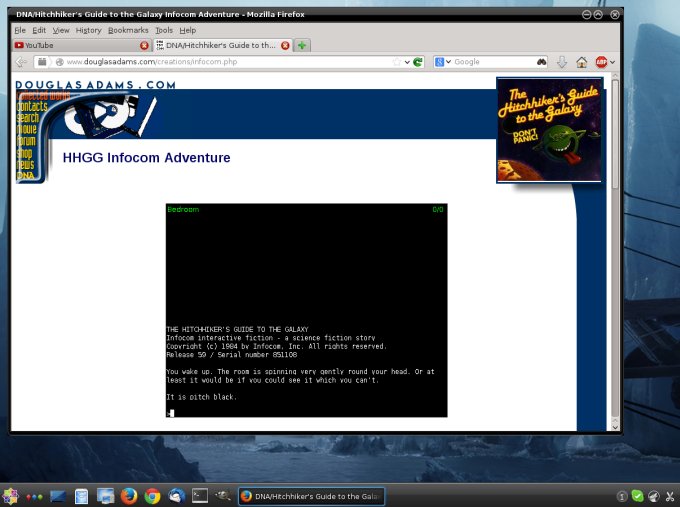
This is quite interesting. There‘s no Flash in Nux‘s repo, but you can go to Adobe‘s official site and download the YUM package. It‘s an RPM that installs a repo file under /etc/yum.repos.d, so you actually get a Flash repository and updates.

rpm -Uvh adobe-release-x86_64-1.0-1.noarch.rpm
warning: adobe-release-x86_64-1.0-1.noarch.rpm: Header V3 DSA/SHA1
Signature, key ID f6777c67: NOKEY
Preparing... ############# [100%])
Updating / installing...
1:adobe-release-x86_64-1.0-1 ############# [100%])
And if you search, you will see this:

Then, you install with:
yum install flash-plugin

Now, to get the right codecs for music, you will need to install the good and ugly Gstreamer plugins. To be on the safe side, try the following packages, including both the older 0.1 and the new 1.0 frameworks, plus ffmpeg:
yum install gstreamer gstreamer1 gstreamer-ffmpeg gstreamer-plugins-good gstreamer-plugins-ugly

You must get this fine player:
yum install vlc
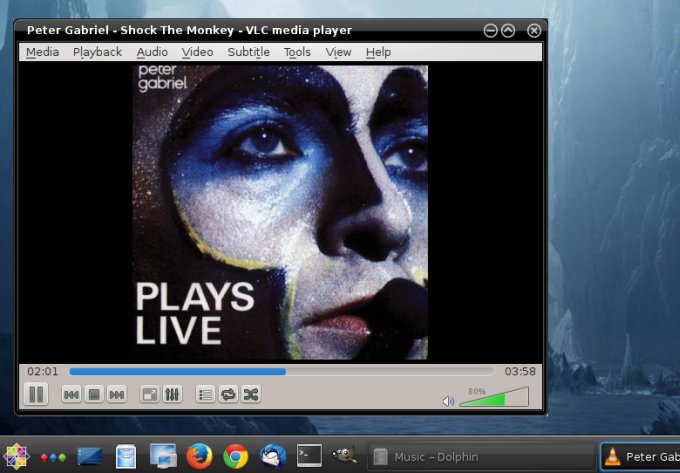
The office suite is also sort of a must, no:
yum install libreoffice

But if you want to write documents the right way, then you have to use LyX, a frontend for LaTeX, the text processor from another dimension. Forget Word, Writer and such. That‘s for kids.
yum install lyx
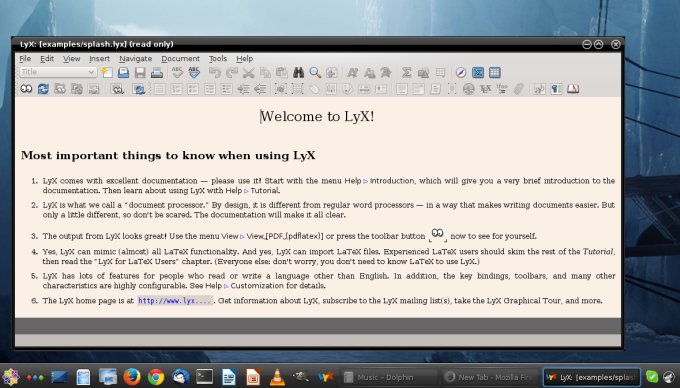
For pictures and whatnot!
yum install gimp

This is an excellent little BitTorrent P2P client. And it‘s here without any great fussing.
yum install transmission

Well, we did see a few neat tricks the last time. Samba sharing and access to NTFS devices, read and write, works fine, and so does auto-mounting of NTFS-formatted external disk. No problem with SSD, which the test machine has two thereof. Wireless, both 2.4GHz and 5GHz networks. And of course, desktop effects work just fine. Shall we demonstrate.

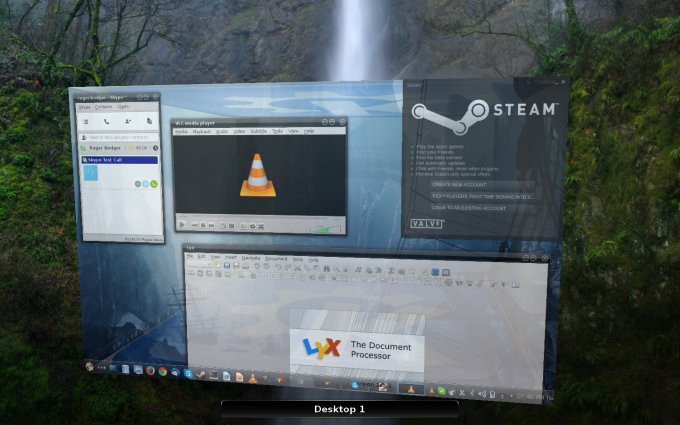
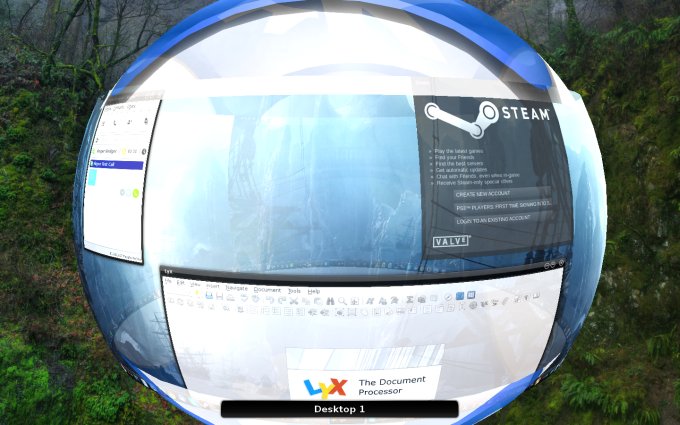

But of course! We have not done everything yet. Like Nvidia drivers for instance. Do not worry, we will be having a few separate tutorials addressing some of the other, more delicate topics. However, my CentOS 6 Nvidia guide is still 100% relevant. And then, there‘s printing, too.
If you care, here‘s more splendid RedHat and CentOS 6 stuff:
The ultimate Scientific Linux pimping guide
The essential Fedora pimping guide
How to make CentOS 6 into a perfect desktop
CentOS 6 pimping guides - parts two and three
CentOS 6 in my production setup
CentOS 6 & SSD stuff
There we go. CentOS 7 has regained its awesomeness again. Had I not tested the distro so early, I would never have encountered those initial woes and niggles. But the operating system has redeemed itself. And I do take back my comment on speed and performance. It‘s lean, lithe, it flies. YUM is a monster, it‘s incredibly fast. The desktop is smooth and responsive, far beyond its expected KDE flair. An excellent job, this one.
With a bit of third-party help, CentOS 7 is a modern, relevant, elegant and fully featured distribution with all the perks, goodies and advantages you find in most popular Debian family releases. Plus ten years of robustness. Plus more. Still more. I am totally pleased, and now it‘s time to expand my usage of this Fedora-19-based gem, because it has everything you need: a modern kernel, stability and tons of great apps. Bloody good.
Cheers.
Guide to make CentOS 7 the perfect desktop
标签:
原文地址:http://www.cnblogs.com/welhzh/p/4269085.html